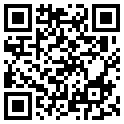The temporomandibular joints, often shortened to just TMJ, are two of the most complex joints in the body and serve to connect the skull and the lower jaw. It is also estimated that as much as 12% of adults today experience some degree of TMJ disorder or jaw pain that can arise out of the blue and spread to other parts of the neck and head. Thankfully, this condition is mostly temporary and goes away on its own with the help of simple home remedies. Below, we go over why your TMJ might hurt and how to relieve the pain.
Signs and symptoms of TMJ disorders
Understanding how the jaw works is key to learning why your TMJ might hurt all of a sudden. Essentially, there are two of these temporomandibular joints that function similarly to the hinges found in doors and work by closing the lower jaw against the upper teeth. When the joints, teeth, and other jaw muscles work harmoniously, jaw problems are less likely to occur.
The mouth’s opening and closing motion happens constantly as we talk and eat throughout the day, but the teeth rarely make contact with each other. Once that is no longer the case is when problems can arise. Clenching your teeth or grinding them together puts additional stress on the TMJ and takes a toll on it over time, and this often takes place when you are asleep. Hence, TMJ pain is a type of injury that stems from overuse. Besides jaw pain, other symptoms of TMJ issues can manifest as:
- Facial pain
- Clicking or popping noises in the jaw
- Wear or new fractures on your teeth
- Limited range of mobility or pain when opening the jaw
- Headaches
- Dizziness
- Tinnitus
Smoking, alcohol use, stress, and certain medications can all increase your risk of developing TMJ problems.
Tips to relieve TMJ pain at home
1. Try stretching your jaw
Just like with the other muscles in your body, a good stretching session may help relieve your jaw pain. First, raise your tongue and put it against the roof of your mouth. Next, open your mouth as wide as possible while maintaining your tongue’s previous position. Maintaining contact with the roof of the mouth ensures you do not open your jaw too wide. Keep your mouth and tongue in this position for six seconds before closing it. Repeat this opening and closing stretch for six times. This exercise stretches any tight jaw muscles you may have and relieves their pain-inducing contractions.
2. Apply hot and cold packs
Warm and cold compresses can help relieve jaw pain in different ways. The latter’s numbing effect is ideal for relieving a sudden onset of sharp jaw pain, often indicating inflammation, as it numbs the affected joints and reduces swelling. For chronic TMJ pain that continues for several days, switch to a warm compress and apply it at least four times daily.
3. Massage your jaw muscles
A simple massage may prove beneficial in releasing tension in the myofascial trigger point of your aching jaw muscles as it brings neuromuscular harmony among the TMJ, neck muscles, and tooth contact. For best results, apply a warm compress when performing the massage.
4. Avoid chewy foods
Naturally, you should avoid crunchy or chewy foods when your TMJ is hurting since they will aggravate the pain. Examples of foods to steer clear of for the time being include:
- Tough meats like steaks
- Nuts
- Jawbreaker candies and other hard sweets
- Tough fruits and vegetables like carrots, apples, and celery
5. Sleep on your back
Maintaining good posture while asleep is just as important as when you are awake. The best position to sleep in for perfect posture is to lie on your back, as it keeps your head, jaw, and neck in their natural alignment and keeps your TMJ free from strain for the entire night.
Conclusion
The following tips above are generally enough to relieve TMJ issues. If they are not enough to relieve the pain, consider speaking to a healthcare provider for an early diagnosis and treatment to prevent your TMJ pain from becoming a chronic condition.
With the MYCLNQ app, getting access to medical help has never been easier. In just a few clicks, you can access many essential services such as private ambulance transport, pharmaceutical e-commerce, and virtual ART tests in Singapore anytime, anywhere. For more information about our services or to understand more about the symptoms you are experiencing, like bruising easily, please don’t hesitate to contact us today.
Source of Information: British Society of Occlusal Studies


